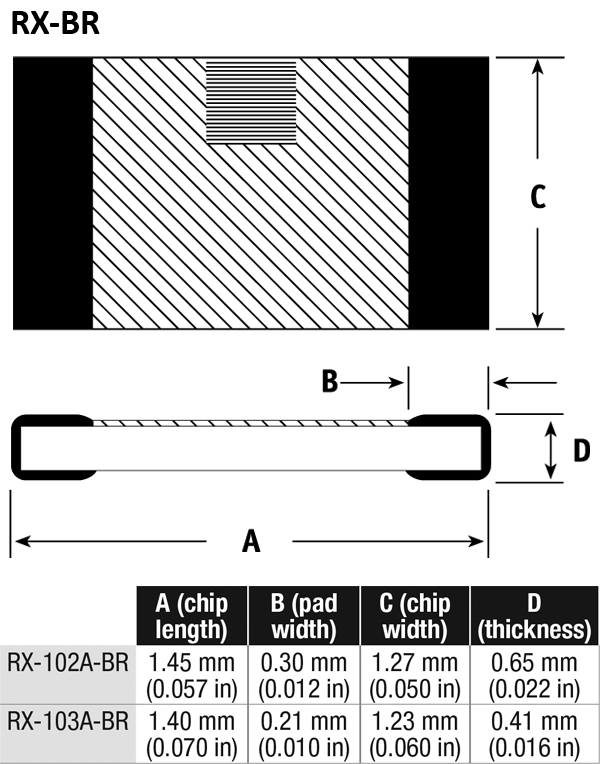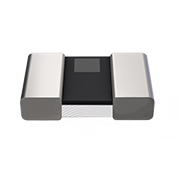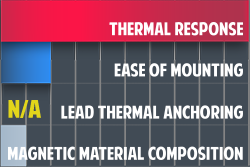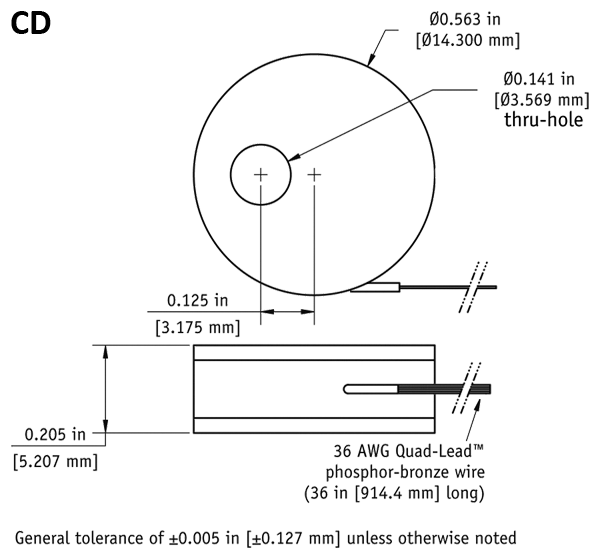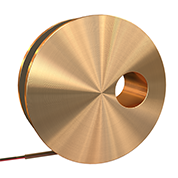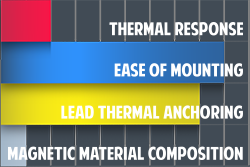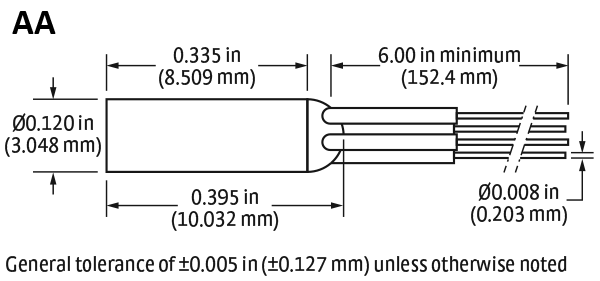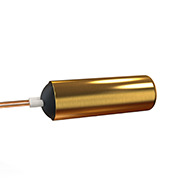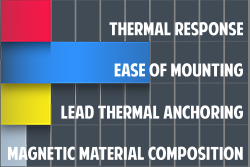Packages and adapters for Rox RTDs allow the sensor to be soldered in place, bolted down, or inserted into a hole. Gold-plated copper bobbins are available in order to heat sink leads. Appendix C: Sensor Packaging and Installation discusses techniques for correctly installing cryogenic temperature sensors. Special packaging is also available—consult Lake Shore for custom orders.
Additional information about Lake Shore sensors and packaging can be found in our Temperature Sensor Selection Guide.
Each sensor package or adapter has been rated for four attributes or characteristics. These ratings give a general idea of how a package will perform and aid in the early decision-making process but are not a substitute for detailed specifications.
Packaging material: Thick ruthenium dioxide and bismuth ruthenate films with palladium silver contacts
Leads: None
Mass: ≤3.0 mg
- AA canister sensor epoxied into a flat, copper bobbin with the sensor leads thermally anchored to the bobbin
- Can be mounted to any flat surface with a 4-40 or M3 screw (not supplied)
Adapter material: Copper bobbin, gold-plated (AA canister epoxied to bobbin)
Leads: 0.91 m (36 in), 36 AWG, color-coded, Quad-Lead™
Lead material: Phosphor bronze Grade A alloy
Limitation: The epoxy limits the upper useful temperature of this configuration to 378 K
Adapter material:
RX-102A-AA, RX-202A-AA, and RX-103A-AA: Thick ruthenium dioxide and bismuth ruthenate films with palladium silver contacts, indium solder, aluminum oxide substrate, sapphire header and copper canister with epoxy seal
Leads: 2
Lead material:
RX-102-A-AA, RX-202A-AA, and RX-103A-AA: copper with heavy build Formvar® attached with epoxy strain relief at sensor - user should branch to 4 (no polarity)
Mass:
RX-102-A-AA: 3.3 g
RX-202A-AA: 3.28 g
RX-103A-AA: 3.36 g
RX-102B-CB: 3.5 g
Limitation: The epoxy limits the upper useful temperature of this configuration to 400 K



